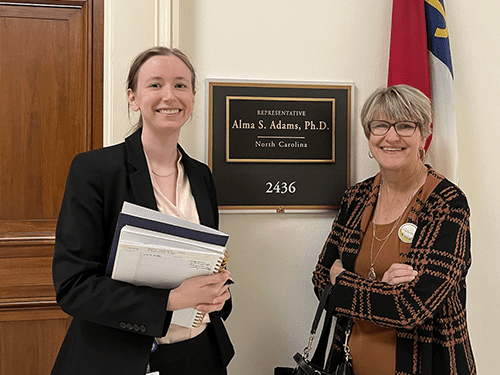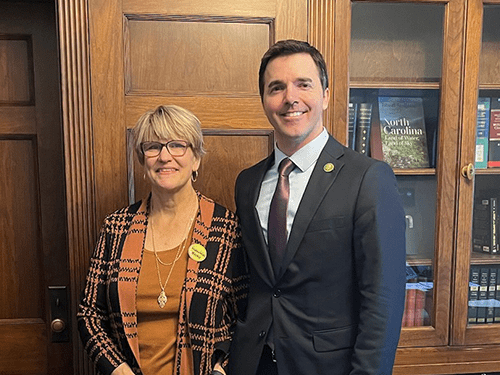
As a chartered member of NeighborWorks America, DreamKey Partners participated in the annual NNA Legislative Day in Washington, DC. DreamKey’s President Julie Porter was on Capitol Hill meeting with North Carolina senators and representatives as part of advocacy efforts to keep housing issues a priority with federal lawmakers.
Why it matters? There are 55,000 people in Charlotte today that need affordable housing. These are teachers, first responders, construction workers, food service workers, healthcare providers, and many others. According to researchers at the University of North Carolina’s Kenan-Flagler Business School, 100 people move to the Queen City every day, making Charlotte one of the top ten fastest-growing cities in the U.S.
Without additional funding, the number of people in need will continue to increase.
Top 10 fastest-growing U.S. cities
| 1. | San Francisco, California | 6. | Denver, Colorado |
| 2. | Austin, Texas | 7. | Salt Lake City, Utah |
| 3. | Seattle, Washington | 8. | Charlotte, North Carolina |
| 4. | Raleigh and Durham, North Carolina | 9. | New Orleans, Louisiana |
| 5. | Dallas, Texas | 10. | Orlando, Florida |
What’s on the table? A $185 million federal appropriations bill and Community Development Block Grant (CDBG) and HOME Investment Partnerships Program (HOME) funding are available to help fund affordable housing initiatives. Under the U.S. Department of Housing and Urban Development, these funds are allocated to states and cities, including Charlotte, to promote community development and sustainable neighborhoods.
DreamKey uses CDBG funds to build homes people can afford, including Vantage Pointe and Phoenix Rising, affordable for-sale townhomes, as well as provide homeownership education programs for those looking to buy a home. To date, we have $367 million in real estate development investments and have served more than 34,000 homebuyer education customers.
HOME provides funds for building, buying and rehabilitating for-sale and for-rent real estate, as well as rental assistance for those struggling to make payments. Examples of how DreamKey uses these funds include Tyvola II, a 20-unit supportive housing rental community for veterans and for-sale single-family homes in the Grier Heights community.
What’s next? Ongoing advocacy by DreamKey and other stakeholders, letter writing by legislatures to colleagues, as well as a request for an appropriation, or earmarked funds, in 2024. Taking an active role now means a greater understanding by Congress of local housing issues including construction and rental assistance programs.
As the population and costs continue to rise, DreamKey’s advocacy work is increasingly significant and requires real action.

